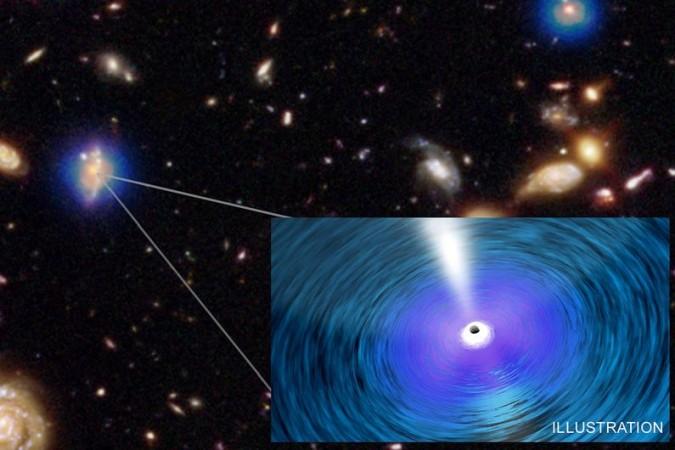
NASA's Chandra X-ray telescope has helped an international team of astrophysicists make an unprecedented discovery in far-off galaxies. New data provided by the telescope has revealed that galaxies located about 3.5 billion years away from the Earth likely host the most massive supermassive black holes ever discovered in the universe.
As part of a new study, published in the journal Monthly Notices of the Royal Astronomical Society, the researchers examined 72 galaxies located at the centre of the universe's brightest and most massive galaxy clusters. According to them, these so-called "ultramassive" black holes are showing no sign of stopping their growth as they continue to get bigger at a faster rate than the stars in their respective galaxies.
A black hole is considered to be one of the most mysterious celestial objects in the cosmos. It has an extremely strong gravitational pull that cannot be escaped by any matter or light as it swallows everything that comes along its path. Massive black holes, which are formed when a massive star dies and collapses on itself, can even distort time around them.
To calculate the masses of black holes detected in the distant galaxy clusters, the researchers analysed their radio wave and X-ray emissions. The results were shocking as the masses of ultramassive black holes were about 10 times greater than what some previous calculations suggested. In addition, the newly-detected black holes were also found to be at least 10 billion times more massive than our Sun.
"We have discovered black holes that are far larger and way more massive than anticipated," Mar Mezcua, a postdoctoral fellow at the Institute of Space Sciences in Spain, and the study's lead author, said in a statement. "Are they so big because they had a head start or because certain ideal conditions allowed them to grow more rapidly over billions of years? For the moment, there is no way for us to know."
The ultramassive black holes contain destructive force that sometimes cause harm to even the host galaxy. They not only sucks all the surrounding matter, but also throws some of it back in the form of energized jets that can destroy much if the hosting galaxy.
According to researchers, it's important to study black holes in distant galaxy clusters as they have been significantly impacting their galactic neighbourhoods as well as the entire universe for billions of years.
"Galaxies are the building blocks of our universe, and to understand their formation and evolution, we must first understand these black holes," Julie Hlavacek-Larrondo, a professor in the Department of Physics at Université de Montréal and one of the lead authors of the study, said in the statement.














